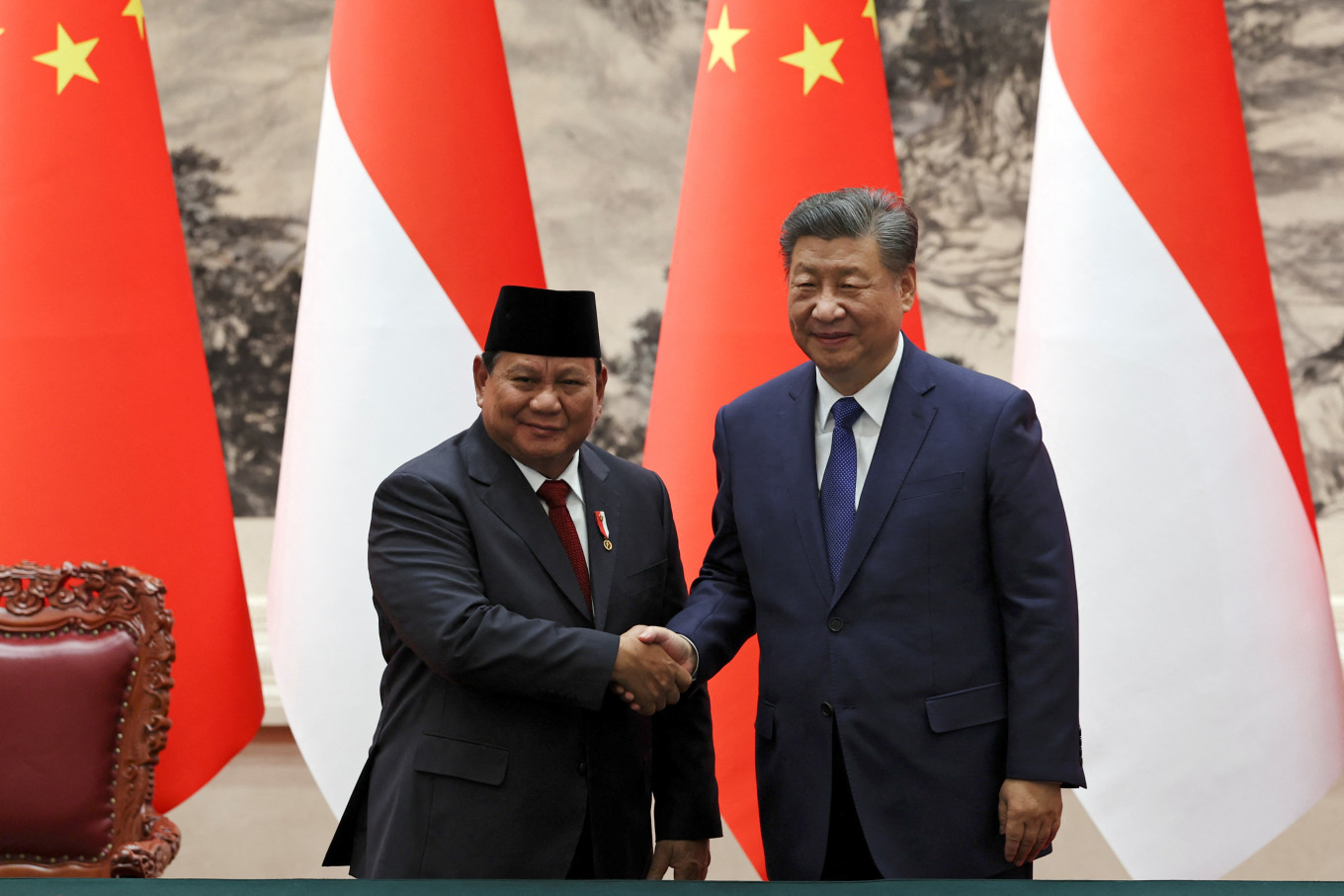Headline: Indonesia and China Forge Joint Development Plan Amid Concerns
Indonesia Strengthens Ties with China While Upholding Sovereignty
Indonesia is taking a significant step toward diplomatic and economic cooperation with China, emphasizing its commitment to “good neighborliness.” On Sunday, the Indonesian Foreign Ministry assured that recent talks with China regarding a joint development plan would not compromise its legal rights or jurisdiction in contested maritime waters. This announcement follows President Prabowo Subianto’s declaration that “partnerships are better than conflicts,” addressing mounting concerns over Indonesia potentially aligning with China’s expansive claims in the South China Sea, which conflicts with other Southeast Asian nations’ territorial assertions.
A New Era of Cooperation
The joint development initiative was announced on November 9, following President Prabowo’s inaugural meeting with Chinese President Xi Jinping. Both countries acknowledged a "common understanding" regarding joint developments in areas with overlapping claims, a phrase that has raised alarms in Jakarta. Analysts are wary that such wording may suggest a shift from Indonesia’s traditional non-claimant stance, hence risking its exclusive resource rights in these contested areas.
Abdul Kadir Jailani, Indonesia’s Director-General for Asia, Pacific, and Africa Affairs, emphasized in a statement that the nation remains adamant in its long-standing position concerning territorial sovereignty in the face of China’s claims. According to Jailani, “Any further speculation should not go beyond the expressly written intent to explore new avenues of cooperation.”
Details Yet to Unfold
The document outlining the agreement indicates the establishment of an intergovernmental committee tasked with exploring the cooperation’s particular modalities. Jailani noted that further details, including the specific geographic scope of this partnership, will be determined by this committee. While he did not provide a definitive timeline for the committee’s formation, the overall sentiment within Jakarta is one of cautious optimism as negotiations progress.
Broader Implications and Background
This development comes amid heightened tensions in the South China Sea, a key region for trade and resource extraction, where overlapping claims have long fueled conflicts between nations. Indonesia, while rich in natural resources and strategically positioned, has traditionally adopted a non-claimant attitude in the South China Sea disputes, focusing instead on regional stability and cooperation.
The potential shift indicated by the recent agreement carries significant implications for the Indonesian technology and resource sectors. Increased collaboration with China could lead to investments in telecommunications, energy, and infrastructure, ultimately fostering the growth of local industries while raising concerns about dependency on Chinese investments.
Economic analysts highlight the need for Indonesia to navigate this partnership carefully to avoid compromising its sovereignty. A balanced approach is essential to ensuring that Indonesia’s interests are adequately safeguarded while also benefitting from technological advancements and infrastructure development that China can provide.
A Future Shaped by Collaboration
The meeting between Indonesia and China is not merely a geopolitical maneuver but a reflection of the global trend towards partnerships over confrontation in solving complex issues. The distinct emphasis on “good neighborliness” may resonate with several Southeast Asian nations that share similar concerns regarding territorial claims in their waters.
Experts urge the Indonesian government to maintain transparency throughout the process as it engages with China. Ensuring that the interests of local stakeholders, communities, and businesses are prioritized will be critical in fostering a cooperative environment beneficial to all parties involved.
For those looking to stay informed on developments and the impacts of international relations on the technology landscape, more articles and insights can be found on Shorty-News as well as external sources like TechCrunch and The Verge.
As this relationship unfolds, readers are invited to share their thoughts on how Indonesia might balance cooperation with sovereignty in the comments section below. Your insights are invaluable as we adapt to an ever-evolving geopolitical landscape.
What are the potential benefits and challenges Indonesia may face in its joint development plan with China in contested maritime waters?
Welcome to our informative interview about the recent joint development plan between Indonesia and China! Today, we have two esteemed guests with us – Mr. Abdul Kadir Jailani, Indonesia’s Director-General for Asia, Pacific, and Africa Affairs, and Ms. Sarah Jones, a renowned economics analyst specializing in the impact of international relations on technology.
Mr. Jailani, we want to start by exploring the implications of Indonesia’s recent talks with China regarding a joint development plan in contested maritime waters. Can you provide more insights into how this initiative might impact Indonesia’s legal rights and territorial sovereignty? Additionally, what steps is the Indonesian government taking to ensure that its economic interests are upheld while forging this new partnership?
Abdul Kadir Jailani: Thank you for having me, World Today News. As Indonesia’s Director-General for Asia, Pacific, and Africa Affairs, it is my responsibility to ensure that our country’s interests are well-represented in our engagements with regional and global partners. Regarding the joint development plan with China, our government remains committed to maintaining our long-standing position concerning territorial sovereignty. The negotiations are still at an early stage, and we are exploring ways to cooperate without compromising our legal rights or jurisdiction in contested areas. We have established an intergovernmental committee to further discuss the modalities of this cooperation, and we intend to make sure that any agreements reached are mutually beneficial for both countries.
Moving forward, Ms. Sarah Jones, can you shed some light on the potential pitfalls and opportunities for Indonesia as it strengthens its ties with China? In what ways might this partnership affect its technology and resource sectors? Furthermore, how can Indonesia balance its need for foreign investment with the preservation of its autonomy and independence?
Sarah Jones: Indeed, Indonesia’s engagement with China presents both risks and opportunities. On one hand, increased collaboration could lead to substantial investments in areas such as telecommunications, energy, and infrastructure. This could promote economic growth and development while also giving Indonesia access to cutting-edge technology and expertise. However, it’s crucial for Indonesia to navigate this partnership carefully


